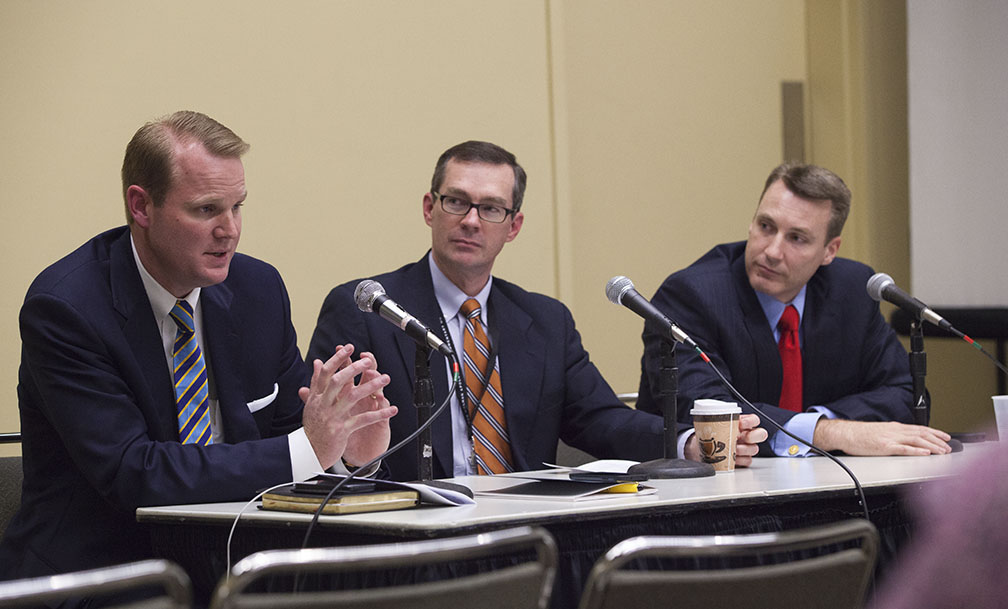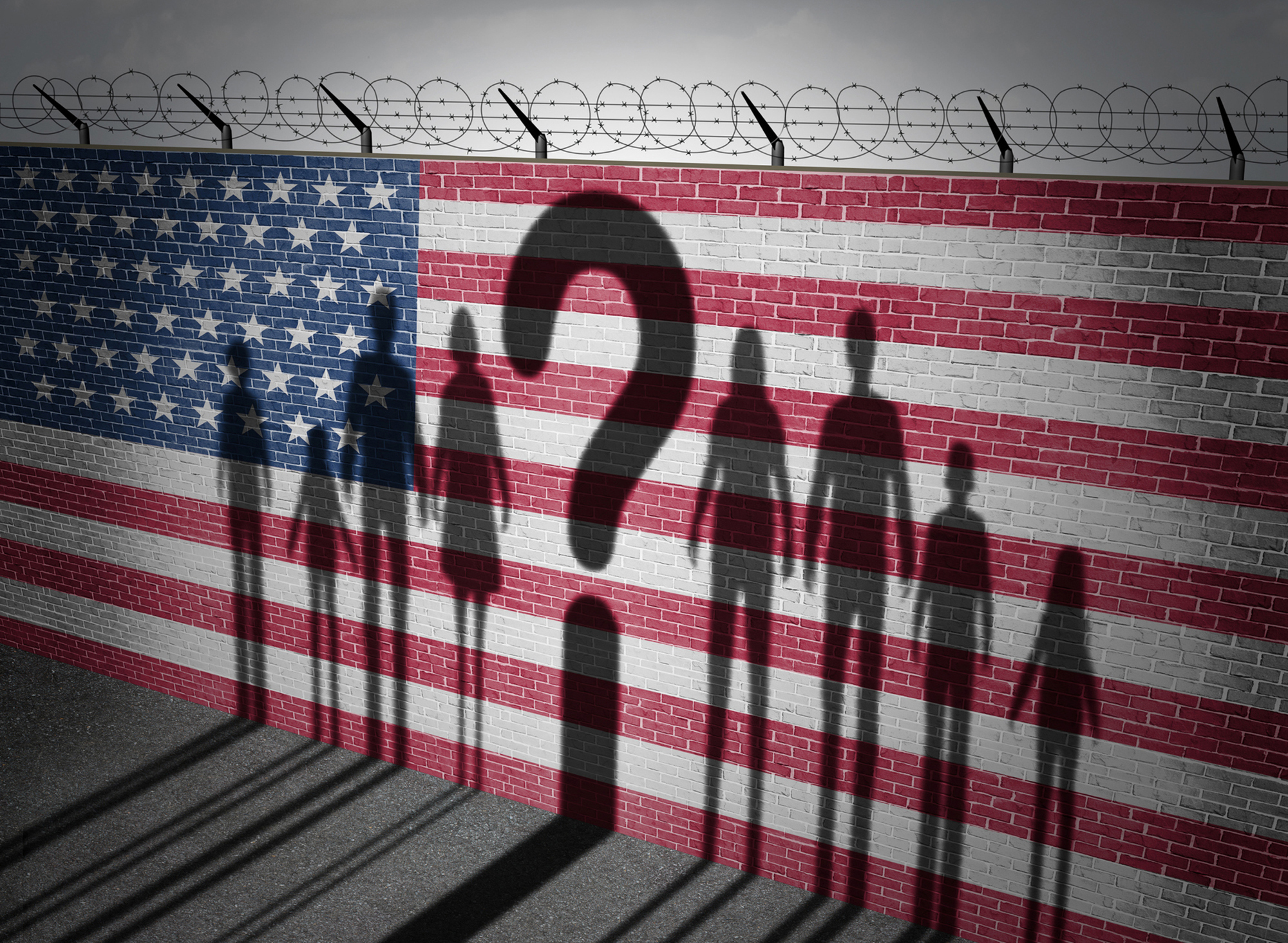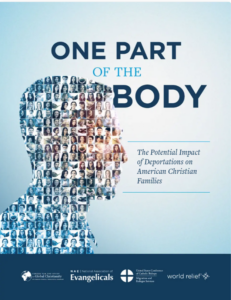
FORT WORTH, Texas (BP) — Challenges in biblical inerrancy facing Christian colleges and seminaries were aired during the Evangelical Theological Society’s annual meeting in Baltimore.
“The doctrine of Scripture is like a continental divide,” Greg Wills, Southern Baptist Theological Seminary’s dean of theology, said during a panel discussion.
“Your doctrine of Scripture is not like one doctrine in a basket full of doctrines,” Wills said. “It’s the doctrine that determines which basket full of doctrines you have.”
The panel, hosted by Southwestern Seminary and moderated by Southwestern vice presidents Jason Duesing and Steven Smith, also featured Cedarville University President Thomas White and Midwestern Baptist Theological Seminary President Jason Allen. The panel addressed the role of biblical inerrancy in their own institutions as well as trends in higher education.
Cedarville requires all faculty and staff to affirm biblical inerrancy as outlined in the Chicago Statement on Inerrancy, with White noting that the Bible “undergirds everything we do.”
“Special revelation, or the doctrine of Scripture, has to have preeminence,” White said during the Nov. 18 session, “so that all of general revelation is judged by the Bible, which is our ultimate foundation. It affects how we do sociology; it affects how we do biology; it affects how we do psychology. If you don’t have that, then you’ll find in certain areas that you creep away from a biblical worldview because you’re not tied to a standard.”
Wills and Allen confirmed that faculty in their institutions also are required to hold to inerrancy based on their seminaries’ guiding documents, which include the Baptist Faith and Message 2000. Both recounted their own seminaries’ histories with faculty abandoning inerrancy and the steps that were needed to restore scriptural fidelity.
Allen said the president of the institution is the “lynchpin” in preserving an institution’s adherence to doctrinal convictions.
“In any school, the president is the lynchpin not only in hiring faculty but in maintaining faculty,” Allen said. “The most important decision any board of trustees makes is who they hire as president. The most important decision any president makes is who he puts on the faculty.”
White agreed, saying, “It is my job to enforce the doctrinal standard.”
“I’m thoroughly convinced that most institutions drift toward [theological] liberalism, or at least start that drift, under presidents that are not moderate or liberal in nature,” White said. “They would call themselves conservatives, but they’re just not ‘minding the store.'”
Homosexuality, the panelists agreed, is a growing issue for Christian colleges.
Sexuality is “the driving issue,” Allen said. “Most Baptist colleges and most Christian colleges ostensibly … are seeking their own ‘Don’t Ask. Don’t Tell’ policy. They’re not speaking to it, and they’re trying to please different constituencies with divergent views.”
White agreed, saying, “A college or university that calls itself Christian but is not one is the worst kind of poison.”
“As a Christian university, we must undergird what God has put in place through Scripture, which is the family, the church and the state,” White said. “And so as I undergird the family, I’m going to have to hold to a complementarian position against homosexuality and hold a view of marriage that is biblical.”
The panelists also said that what happens in evangelical higher education –including Christian colleges, universities and seminaries — impacts churches as well as the broader evangelical movement.
“The professors who are writing books, thinking thoughts, engaging culture and engaging new errors have the opportunity to have a tremendous impact upon the entire movement [of evangelicalism],” Wills said.
When asked about how such strong stances on biblical inerrancy affect the idea of academic freedom in higher education, the panelists said true academic freedom is a false notion.
“It’s not academic freedom in the way it’s advertised,” Wills said. “Academic freedom, as it has developed in the American university system, is one that was designed deliberately for the toleration of leftward views on the faculty of all sorts. Some of those things turned out for good because they were things that needed to be done, but there was a lot of damaging error that came in at the same time. Don’t buy the advertisement that it’s some kind of neutral freedom.”
–30–
Keith Collier is director of news and information for Southwestern Baptist Theological Seminary in Fort Worth, Texas. Get Baptist Press headlines and breaking news on Twitter (@BaptistPress), Facebook (Facebook.com/BaptistPress) and in your email (baptistpress.com/SubscribeBP.asp).














